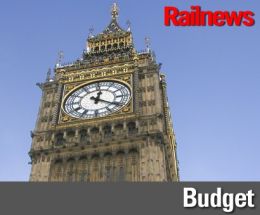Posted 22nd November 2017 | 1 Comment
More funding for city regions in Autumn Budget

THE Chancellor Philip Hammond has confirmed more money for transport in the city regions and the extension of railcards for young people to the age of 30.
In his Autumn Budget, Mr Hammond said his growth forecast for 2017 was down from 2 per cent to 1.5 per cent, while productivity growth and business investment was also revised downwards. The annual rate of inflation, as measured by the Consumer Price Index, is expected to fall from 3 per cent towards its 2 per cent target later this year.
There is to be a North of the Tyne devolution deal and investment in Tyne and Wear Metro, where the present fleet of trains is reaching the end of its life. There will also be a second devolution deal for the West Midlands, plus backing for East West Rail, £300 million for Northern Powerhouse Rail and the bringing forward of £200 million for Network Rail to use for renewals in the present control period, CP5.
The Railway Industry Association said it was ‘disappointed’ that the full £500 million requested had not been agreed by the Treasury, but RIA’s chief executive Darren Caplan said: “It is positive news that today, on Budget Day, we can applaud the Treasury’s decision to allow Network Rail to allocate an additional £200 million to spend on renewals in CP5. This would not have happened if the rail sector had not made the case for funding the CP5 shortfall up to March 2019, and it will certainly go some way to helping deliver a better railway, which is not only good for the rail supply sector, but also the Government, the taxpayer and the travelling public.”
The new money for transport in the city regions has also been welcomed, but there has been a muted response to the railcard changes, with transport campaigners saying it will leave rail users over 30 and under 60 to face the full effect of January’s rail fares increase of 3.6 per cent, which is based on last July’s Retail Price Index.
The chief executive of the Campaign for Better Transport, Stephen Joseph, said: “We welcome the announcement of investments in city transport like the new trains in Tyne & Wear, the youth railcard, the emphasis on high density housing around urban transport hubs and extra taxes on diesel purchases, premium air fares and business jets. These are things we have been calling for and we’re glad to see the Chancellor has listened.
“However, by freezing fuel duty while again allowing rail fares to rise and ignoring help for buses altogether, the Chancellor has caved into the siren calls from the road lobby at the expense of real action on air pollution. The Clean Air Fund, support for electric vehicles and the tax on new diesels and company cars are welcome and will help, but while fuel duty remains frozen, more roads get built, and there's no real help to get rid of old diesels and reduce car use, pollution will continue to lead to thousands of premature deaths.
“This isn't even a Budget for motorists – for all the talk of driverless cars, there's nothing here to deal with the problems today like the £12 billion backlog in local road maintenance or other everyday transport like bus services. Over-emphasis on driverless cars risks ignoring the real promise of big data and mobility services to tackle traffic problems now, and talk of platooning lorries risks ignoring the potential that investment in railfreight would bring in cutting motorway congestion now.
“The ‘millennial railcard’ for 26-30s is of course welcome, but it's no substitute for a general freeze on rail fares this year or real rail fares reform such as season tickets for part time workers.
“We’ll await the details of some of the headline announcements made today to see what they will mean in practice.”
Meanwhile, the director of the think tank IPPR North Ed Cox said: “We welcome the drip drip of small investments in Northern transport infrastructure but nothing the Chancellor has announced will bring the transformational change the Northern economy needs to see. We need £59 billion catch-up cash to drive the growth that will turn around the ever-widening productivity gap between North and South. This is not rocket science.”
Reader Comments:
Views expressed in submitted comments are that of the author, and not necessarily shared by Railnews.

Chris Reynell, Longstock
Please could someone explain "platooning lorries".
[‘The government has given the go-ahead for the first trials of convoys of semi-automated trucks on UK motorways. Up to three wirelessly connected HGVs will travel in convoy, with acceleration, braking and steering controlled by the lead vehicle, a concept named platooning.’ (The Guardian, 24 August 2017).--Editor.]